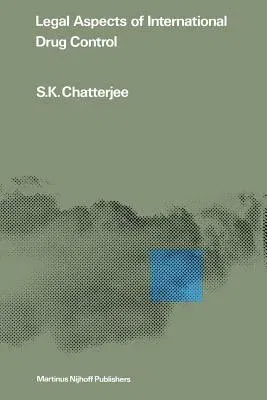S K Chatterjee
(Author)Legal Aspects of International Drug Control (Softcover Reprint of the Original 1st 1981)Paperback - Softcover Reprint of the Original 1st 1981, 1 January 1981

Qty
1
Turbo
Ships in 2 - 3 days
In Stock
Free Delivery
Cash on Delivery
15 Days
Free Returns
Secure Checkout
Print Length
587 pages
Language
English
Publisher
Springer
Date Published
1 Jan 1981
ISBN-10
9401185212
ISBN-13
9789401185219
Description
Product Details
Author:
Book Edition:
Softcover Reprint of the Original 1st 1981
Book Format:
Paperback
Country of Origin:
US
Date Published:
1 January 1981
Dimensions:
23.39 x
15.6 x
3.15 cm
ISBN-10:
9401185212
ISBN-13:
9789401185219
Language:
English
Location:
Dordrecht
Pages:
587
Publisher:
Weight:
848.22 gm

